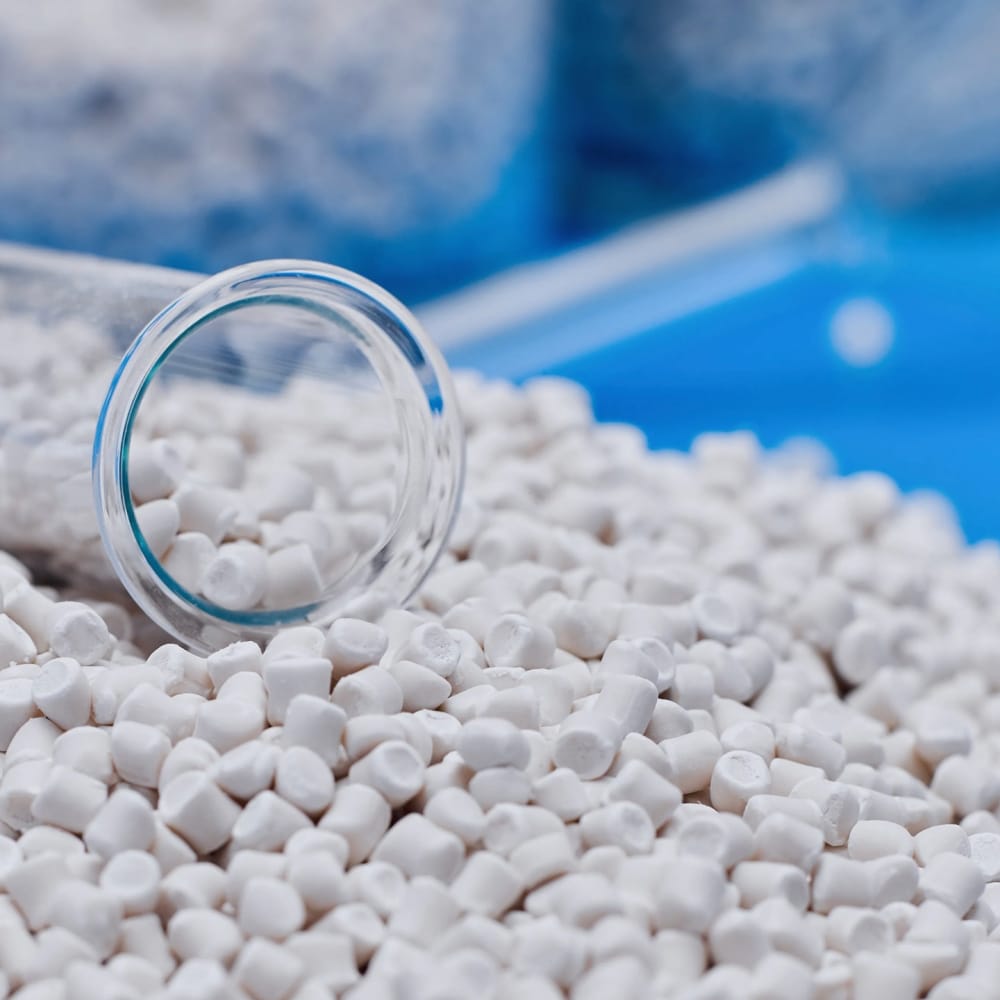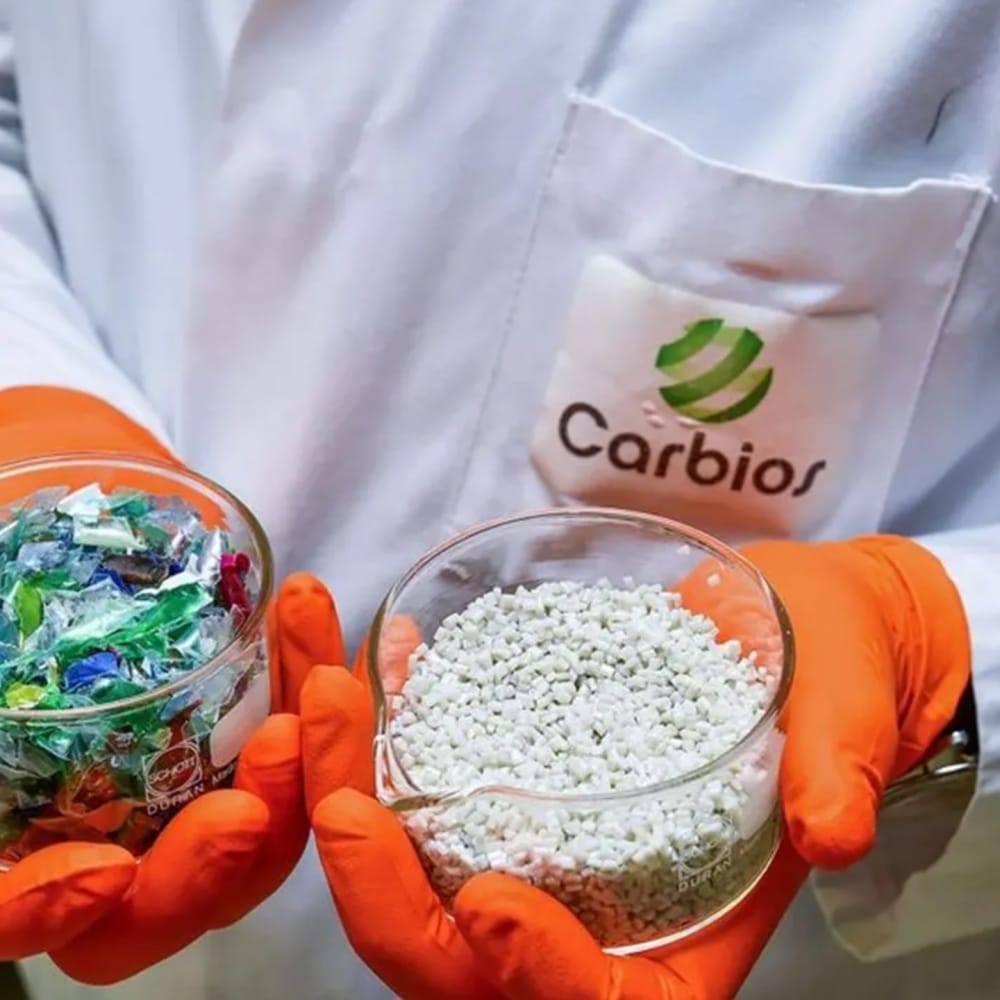Enzymatic Plastic Recycling and Biodegradation
Circular Technology In Recycling Plastics
The biochemistry company, Carbios, has developed an enzyme-based technology that can recycle all types of PET plastic, including those typically difficult to process, such as colored, opaque, and complex plastics. This process breaks PET down into its basic components, allowing it to be reused to create new plastics with the same quality as virgin materials.
Additionally, Carbios developed CARBIOS Active, an enzyme-based solution that makes PLA (Polylactic Acid) plastics fully compostable, even at room temperature. PLA, commonly used in items like coffee capsules and tea bags, usually requires industrial composting. However, CARBIOS Active, which is integrated directly into the manufacturing of flexible or rigid PLA packaging, allows PLA to safely decompose when collected with organic waste and composted in both domestic and industrial conditions. The enzyme remains inactive during use and only activates under composting conditions, ensuring a residue-free breakdown. The enzyme has been TÜV certified as OK Home Compostable.
Carbios claims their enzymatic process uses less energy and water than traditional recycling methods, further reducing its environmental impact.
The have garnered support from major companies such as L’Oréal, Nestlé, PepsiCo, and Patagonia, demonstrating its potential for widespread adoption across industries.
Product Name: Carbios
Manufacturer: Carbios
Project Status: Concept // Prototype // Market Ready // Series Production Ready
Source: Carbios
Image Source: Carbios

